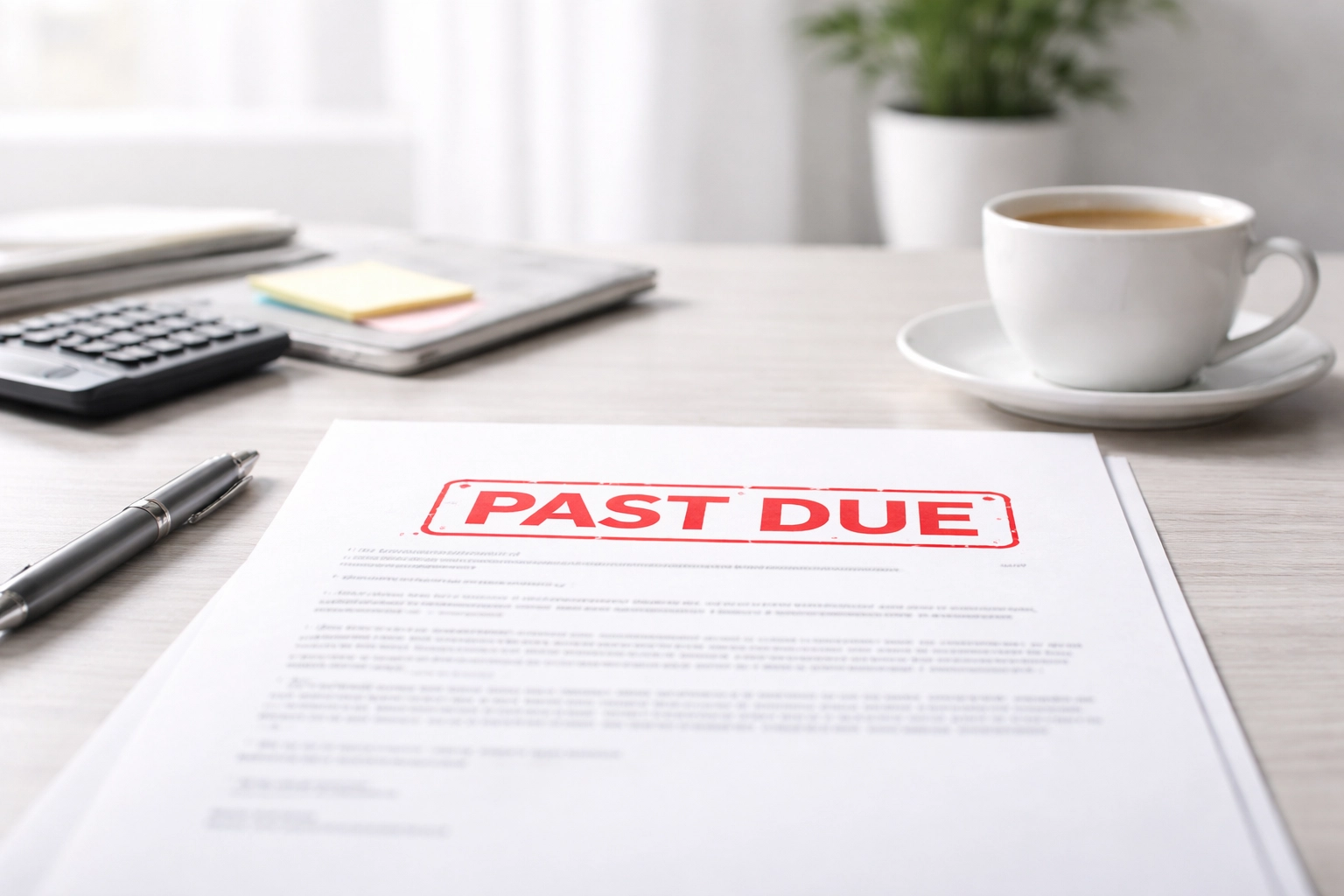Collecting overdue payments is one of the most challenging aspects of running a business, but it doesn’t have to be confrontational. Collection letters are a powerful tool when other communication efforts—like emails, calls, or text messages—have been ignored, or when clients have missed a payment they promised to make.
In this post, we’ll cover:
- When to send collection letters
- Why they are critical to the collections process
- Sample templates for various stages of overdue payments
- How to write a firm, assertive collection letter
- The role of a professional collection agency when letters are ignored
Why Collection Letters Matter?
Collection letters should only be used once informal attempts to contact the client have failed. The letter serves as your final warning—making it clear that if payment is not received, you will take immediate and serious action, such as involving a collection agency or pursuing legal options. The letter needs to be firm, direct, and clear that the matter will not be ignored.
Once you have sent multiple reminders and received no response, it’s time to escalate the situation. That’s when a professional collection agency like ours steps in to assist with recovery. If your efforts at collection haven’t been successful, we specialize in enforcing the debt collection process in the most efficient and effective way possible.
When Should You Send Collection Letters?
Collection letters should be sent after you have already made multiple attempts to contact the client through phone calls, emails, and texts, but they have still failed to respond or meet their payment obligations. The letter should not be your first communication but rather your final attempt to resolve the matter before escalating.
- After no response to your initial reminders: The client has ignored your emails, phone calls, and text messages.
- When a payment commitment was made and broken: The client promised payment on a specific date but failed to follow through.
- When previous letters have been ignored: It’s been a week or two since your last communication, and there’s still no payment.
Collection Letter Templates
These templates should be sent after multiple failed communication attempts and should communicate the seriousness of the situation. The tone is no longer friendly or casual—it’s direct, firm, and demands immediate action.
1. First Collection Letter – Immediate Action Required
When to send: After 7–14 days of no response
Why it works: This is your first formal attempt, and it needs to be firm, stating that you will not tolerate further delay. You are giving the client one last chance to settle the debt before more severe actions are taken.
Important tip: Start by giving the client one final opportunity to settle the matter but make it clear that there will be serious consequences if they fail to act.
Subject: Final Notice – Immediate Payment Required for Invoice #[Invoice Number]
Dear [Client Name],
This is your final notice regarding the unpaid invoice #[Invoice Number], originally due on [Due Date]. The total outstanding balance is [Amount], and it is now [X] days overdue.
Despite multiple attempts to contact you and reminders sent, we have yet to receive payment or hear from you regarding the outstanding amount. This is unacceptable, and we demand immediate payment.
If payment is not received by [Insert Date], we will proceed with referring this matter to a collection agency or pursuing legal action to recover the debt. This is your last chance to resolve this issue directly with us.
We expect full payment or an immediate response regarding your intentions.
Failure to act will result in serious consequences.
Sincerely,
[Your Name]
[Your Contact Information]
2. Second Collection Letter – Payment Not Received, Legal Action Imminent
When to send: 14–21 days after the initial collection letter
Why it works: At this point, the client has ignored your previous formal request. The tone needs to get even firmer, emphasizing that legal or third-party actions will be taken immediately if the debt is not paid.
Important tip: In this letter, you're no longer offering an opportunity for explanation—you're informing them of the immediate next steps if the debt remains unpaid.
Subject: Urgent: Immediate Payment or Legal Action
Dear [Client Name],
This is a second and final warning regarding the unpaid invoice #[Invoice Number]. The amount due is [Amount], and it is now [X] days past due.
We have made multiple attempts to resolve this matter amicably, but you have failed to respond or settle the outstanding balance. This is your final opportunity to settle your debt before we take further action.
If payment is not received by [Insert Date], we will have no choice but to escalate this matter to a collection agency or pursue legal action, including but not limited to filing a lawsuit for recovery of the amount owed, along with interest and additional legal fees.
This is your last chance to avoid such actions.
We expect immediate payment.
Sincerely,
[Your Name]
[Your Contact Information]
3. Final Collection Letter – Legal Action Will Be Taken
When to send: 30+ days after the original due date
Why it works: This is the final letter before taking formal action. At this point, the client has ignored all communications, and you are now clearly stating that legal or third-party collection measures will be taken immediately.
Important tip: There should be no ambiguity here—make it crystal clear that if they don’t pay, you will pursue legal action or engage a collection agency.
Subject: Final Demand for Payment – Legal Action Pending
Dear [Client Name],
This is a final demand for payment on invoice #[Invoice Number], totaling [Amount]. As of today, your balance is [X] days overdue, and we have yet to receive payment despite multiple attempts to contact you.
This is your final opportunity to resolve this matter. If full payment is not received by [Insert Date], we will refer this account to a collection agency or take immediate legal action. We will seek the full amount owed, including interest, fees, and the costs associated with collecting this debt.
This is the last warning. Once the matter is referred to third parties, you will be responsible for additional costs and your credit may be affected.
We advise that you pay immediately or contact us to discuss a resolution.
Failure to do so will result in legal action being taken without further notice.
Sincerely,
[Your Name]
[Your Contact Information]
💡 Pro Tips for Writing Firm Collection Letters
- Be direct and assertive: Don’t be afraid to state exactly what will happen if the payment is not made.
- Set a clear deadline: Always specify an exact date by which payment must be received to avoid escalation.
- Use formal and strong language: Avoid overly friendly or conciliatory language. Be clear and firm in your tone.
- State the consequences clearly: Let the client know exactly what will happen if they fail to pay—whether it's legal action, a credit report mark, or referral to a collection agency.
- Track everything: Always keep a record of all communication, including collection letters, for future reference or legal purposes.
Collection letters are a necessary part of the payment recovery process. By following these templates and using a firm, no-nonsense tone, you’ll demonstrate that non-payment is not an option. These letters serve as your final warning before you escalate to legal action or collection agencies.
If your collection efforts have been ignored or you need immediate, professional intervention, ICON Collection Solutions is your trusted partner in recovering what’s owed to you. With our expert team, we will take swift, aggressive action on your behalf to ensure the debt is collected, and we will protect your financial interests at every step. We leverage every available legal avenue to get results, ensuring that you are fully compensated without further delay.
Don’t wait—contact us today to get the professional help you need before your debt situation worsens.














%20(1).jpg)

.jpg)






